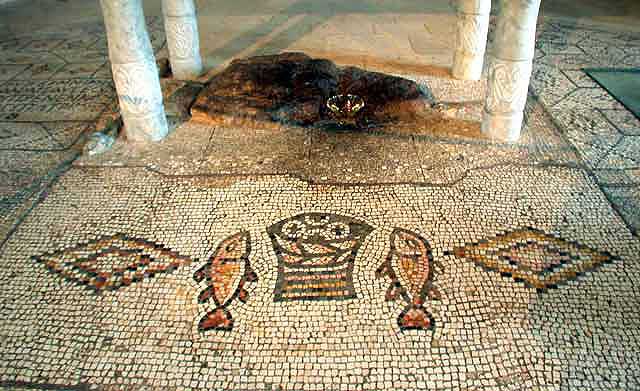Get close to marginalized people, close the distance until touching them without being afraid to get dirty. This is the “Christian closeness” that Jesus showed us concretely when he freed the leper from the impurity of the disease and also from social exclusion. During Mass at Santa Marta on Friday, 26 June, the Pope asked every Christian and the Church as a whole to have this attitude of “closeness”. The Pope’s next Mass at Santa Marta is scheduled for Tuesday, 1 September.
“When Jesus came down from the mountain, a great crowd followed him”. Francis thus began his homily, repeating the first words from the day’s Reading from the Gospel according to Matthew (8:1-4). All of those people, the Pope explained, “heard his catechesis: they were astonished because he spoke to them ‘with authority’, not like the doctors of the law” whom they were used to hearing. The Gospel specifies that “they were astonished”.
Thus, these people begin to follow Jesus, without getting tired of listening to him. The Pope recalled that those people “stayed all day and, in the end, the Apostles” realized that they had to be hungry. But “hearing Jesus was a joy for them”. And thus, “when Jesus finished speaking, he came down from the mountain and the people followed him” and gathered round him. These people, the Holy Father recalled, “went on the roads, on the paths, with Jesus”.
However, “there were other people who didn’t follow him: they watched him from afar, with curiosity”, wondering, “Who is this man?”. After all, Francis explained, never “had they heard such astonishing catecheses”. And thus there were “people who were watching from the sidewalk” and “there were other people who couldn’t approach: la law forbade it for they were ‘unclean’”. The leper spoken about in Matthew’s Gospel was from this group.
“This leper felt in his heart a longing to draw close to Jesus”, the Pope noted. “He took courage and approached”. But “he was a marginalized person”, and thus, “couldn’t do so”. However, “he had faith in that man, took courage and drew near”, turning “simply to his prayer: ‘Lord, if you will, you can make me clean’”. He said this “because he was unclean”. Indeed, “leprosy was a life sentence”. And “healing a leper was as difficult as bringing a dead man back to life: this is why they were marginalized. All of them there were so. They could not mix with the people”.
There were, however, “also the self-marginalized”, Francis continued. “The doctors of the law who were always watching with that longing to put Jesus to the test, to make him slip up, and then condemn him”. The leper, however, knew he was “unclean, sick, and he approached”. So, the Pope asked, “what did Jesus do?”. He didn’t stand still, without touching him, but instead drew even closer, stretched out his hand and healed him.
“Closeness”, the Pontiff explained, is “such an important word: you can’t build a community without closeness; you can’t make peace without closeness; you can’t do good without drawing near”. Jesus could have said to him: “Be healed!”. But instead He drew close and touched him. “What’s more: at the moment that Jesus touched the unclean man, He became unclean”. And “this is the mystery of Jesus: He takes upon himself our uncleanliness, our impurities”.
It is a reality, the Pope continued, which St Paul describes well when he writes that Jesus, “though he was in the form of God, did not count equality with God a thing to be grasped, but emptied himself”. Paul goes even further, confirming that “Jesus became sin”: Jesus became sin, Jesus became excluded, took impurity upon himself to draw close to man. Thus “he did not count equality with God a thing to be grasped,” but instead “emptied himself, drew near, became sin, became unclean”.
“So often, I think that it may be, I wouldn’t say impossible, but very difficult to do good without getting our hands dirty”. And “Jesus got dirty” with his “closeness”. But then, Matthew recounts, he went even further, saying to the man who was freed from his illness: “Go to the priests, and do what must be done when a leper is healed”.
Essentially, “that man who is excluded from social life, Jesus includes: includes in the Church, includes in society”. He advises: “Go, so that all things shall be as they must be”. Thus, “Jesus never marginalizes anyone, ever!”. Moreover, Jesus “marginalizes himself in order to include the marginalized, to include us, sinners, marginalized people, by his life!”. And “this is beautiful”, the Pontiff noted.
How many people followed Jesus in that time and have followed Jesus in history because they are astonished of how he speaks”, Francis explained. And “how many people are watching from afar and do not understand, are not interested; how many people watch from afar but with a wicked heart, to put Jesus to the test, to criticize him, to condemn him”. And yet, “how many people watch from afar because they don’t have the courage” of that leper, “but have such longing to draw near”. And “in that case, Jesus stretched out his hand, first; not as in this case, but in his being he reached out his hand to everyone, becoming one of us, like us: sinners like us but without sin; but a sinner, soiled by our sins”. And “this is Christian closeness”.
“Closeness” is a “beautiful word, for each of us”, the Pope continued. We should ask ourselves: “Do I know how to draw near? Do I have the strength, do I have the courage to touch those who are marginalized?”. And “the Church, parishes, communities, consecrated men and women, bishops, priests, everyone” should also answer this question: “Do I have the courage to draw near or do I always keep my distance? Do I have the courage to close the distance, as Jesus did?”.
Pope Francis then emphasized that “now on the altar”, Jesus “will draw near to us: he will close the distance”. Therefore, “let us ask him for this grace: Lord, may I not be afraid to draw close to the needy, to the needy who are visible or to those who have hidden wounds”. This, this Pope concluded, is “the grace of drawing near”.
2015-06-26 L’Osservatore Romano

.jpg)














 This Sunday's gospel for the 15th Sunday in Ordinary Time tells us of Jesus sending out the apostles to preach and his "marching orders" to them - including some details about uniforms!
This Sunday's gospel for the 15th Sunday in Ordinary Time tells us of Jesus sending out the apostles to preach and his "marching orders" to them - including some details about uniforms!




 Again, the kingdom of heaven is like a merchant
Again, the kingdom of heaven is like a merchant